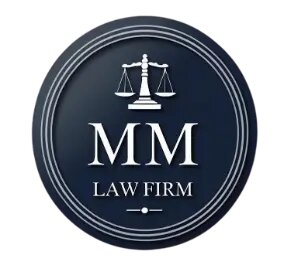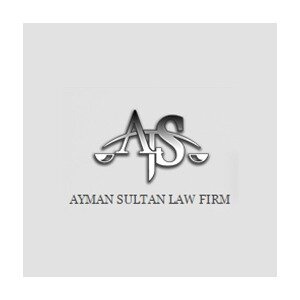Best Education Law Lawyers in Cairo
Share your needs with us, get contacted by law firms.
Free. Takes 2 min.
List of the best lawyers in Cairo, Egypt
About Education Law in Cairo, Egypt
Education law in Cairo, Egypt, encompasses the statutes, regulations, and policies directed towards the governance of education systems within the city. This field of law is crucial for ensuring that educational institutions operate within the legal framework established by national and local authorities. Egypt's educational provisions are primarily regulated by the Ministry of Education, which sets guidelines for curricula, teacher qualifications, school management, and student rights. The legal framework aims to uphold the rights of students and educators while promoting access to quality education for all individuals.
Why You May Need a Lawyer
There are several scenarios where individuals or institutions may require legal advice in the field of education law:
- Student Rights: Students or their guardians may require legal assistance if they believe that a student's rights have been violated by an educational institution.
- Disciplinary Actions: Handling disputes related to inappropriate disciplinary actions against students or staff members might need legal intervention.
- Special Education: Families requiring clarity or negotiation on special education services and accommodations may need legal support.
- School Administration Issues: Legal challenges in managing schools, such as compliance with educational standards and employment law, may necessitate a lawyer’s expertise.
- Teacher’s Rights: Educators facing issues related to contracts, employment conditions, or discrimination might require legal counsel.
Local Laws Overview
Key aspects of local laws relevant to education law in Cairo include:
- Compulsory Education Law: This mandates that children of certain ages must attend school, upholding the right to primary and secondary education for all children.
- Private and International Schools Regulation: Specific guidelines govern the operations of private and international schools including curriculum standards and teacher qualification requirements.
- Child Protection under Educational Settings: Laws safeguarding children from abuse and ensuring a safe educational environment.
- Inclusivity and Non-discrimination: Policies ensure inclusivity and prevent discrimination based on ethnicity, religion, or gender.
- Curriculum Standards: Regulations by the Ministry of Education establish the required educational standards and curricula for different educational levels.
Frequently Asked Questions
What are the rights of students in Cairo's educational institutions?
Students have the right to a safe learning environment, access to quality education, freedom from discrimination, and due process in disciplinary actions.
How does the Egyptian education system accommodate special needs students?
The law mandates tailored educational plans and resources to ensure that students with special needs receive appropriate education in accordance with their individual requirements.
Are there legal requirements for homeschooling in Cairo?
Yes, homeschooling is subject to regulations by the Ministry of Education regarding educational standards and student assessments to ensure education quality.
What should I do if my child experiences discrimination at school?
You can file a formal complaint with the school administration and potentially seek legal advice to explore further action if necessary.
Who regulates the educational institutions in Cairo?
The Ministry of Education is responsible for overseeing educational institutions through regulatory policies and ensuring compliance with national educational standards.
What legalities surround opening a private school in Cairo?
The process involves obtaining permits from relevant authorities, adhering to curriculum regulations, and meeting health and safety standards.
Can teachers strike under Egyptian law?
Teachers do have the right to strike, but it must be in accordance with Egyptian labor laws and cannot disrupt essential educational services.
How are disciplinary issues handled legally within schools?
Schools must adhere to a code of conduct that aligns with local laws, ensuring fairness, due process, and respect for the rights of all parties involved.
How are foreign educational programs governed in Cairo?
Foreign educational programs are governed by regulations ensuring that educational standards meet the requirements set by Egyptian authorities while respecting their international credentials.
What legal recourses are available if a school breaches a contract?
One may consult a lawyer to pursue mediation, arbitration, or legal action depending on the situation’s severity and context.
Additional Resources
Several resources are available for those seeking further information or assistance related to education law in Cairo:
- Ministry of Education: Responsible for education policies and regulations, providing guidelines and resources about educational rights and standards.
- Egyptian Legal Assistance Centers: Offer legal advice and services to families and individuals regarding various legal matters including education law.
- Non-Governmental Organizations (NGOs): Organizations that may provide support and advocacy services to protect the educational rights of children.
- Education Unions: Groups that represent teachers' interests and can provide legal support to their members regarding employment issues and rights.
Next Steps
If you need legal assistance in education law, consider the following steps:
- Consult with an Education Lawyer: Seek legal advice from a professional specialized in education law to understand your rights and options.
- Gather Documentation: Collect relevant information, including correspondence, contracts, and records of incidents to assist your legal counsel effectively.
- Contact Relevant Authorities: For matters involving public policy or discrimination, reach out to the Ministry of Education or appropriate governing body for guidance and support.
- Explore Mediation or Arbitration: Consider alternative dispute resolution methods if the issue can be settled without the need for litigation.
Lawzana helps you find the best lawyers and law firms in Cairo through a curated and pre-screened list of qualified legal professionals. Our platform offers rankings and detailed profiles of attorneys and law firms, allowing you to compare based on practice areas, including Education Law, experience, and client feedback.
Each profile includes a description of the firm's areas of practice, client reviews, team members and partners, year of establishment, spoken languages, office locations, contact information, social media presence, and any published articles or resources. Most firms on our platform speak English and are experienced in both local and international legal matters.
Get a quote from top-rated law firms in Cairo, Egypt — quickly, securely, and without unnecessary hassle.
Disclaimer:
The information provided on this page is for general informational purposes only and does not constitute legal advice. While we strive to ensure the accuracy and relevance of the content, legal information may change over time, and interpretations of the law can vary. You should always consult with a qualified legal professional for advice specific to your situation.
We disclaim all liability for actions taken or not taken based on the content of this page. If you believe any information is incorrect or outdated, please contact us, and we will review and update it where appropriate.













